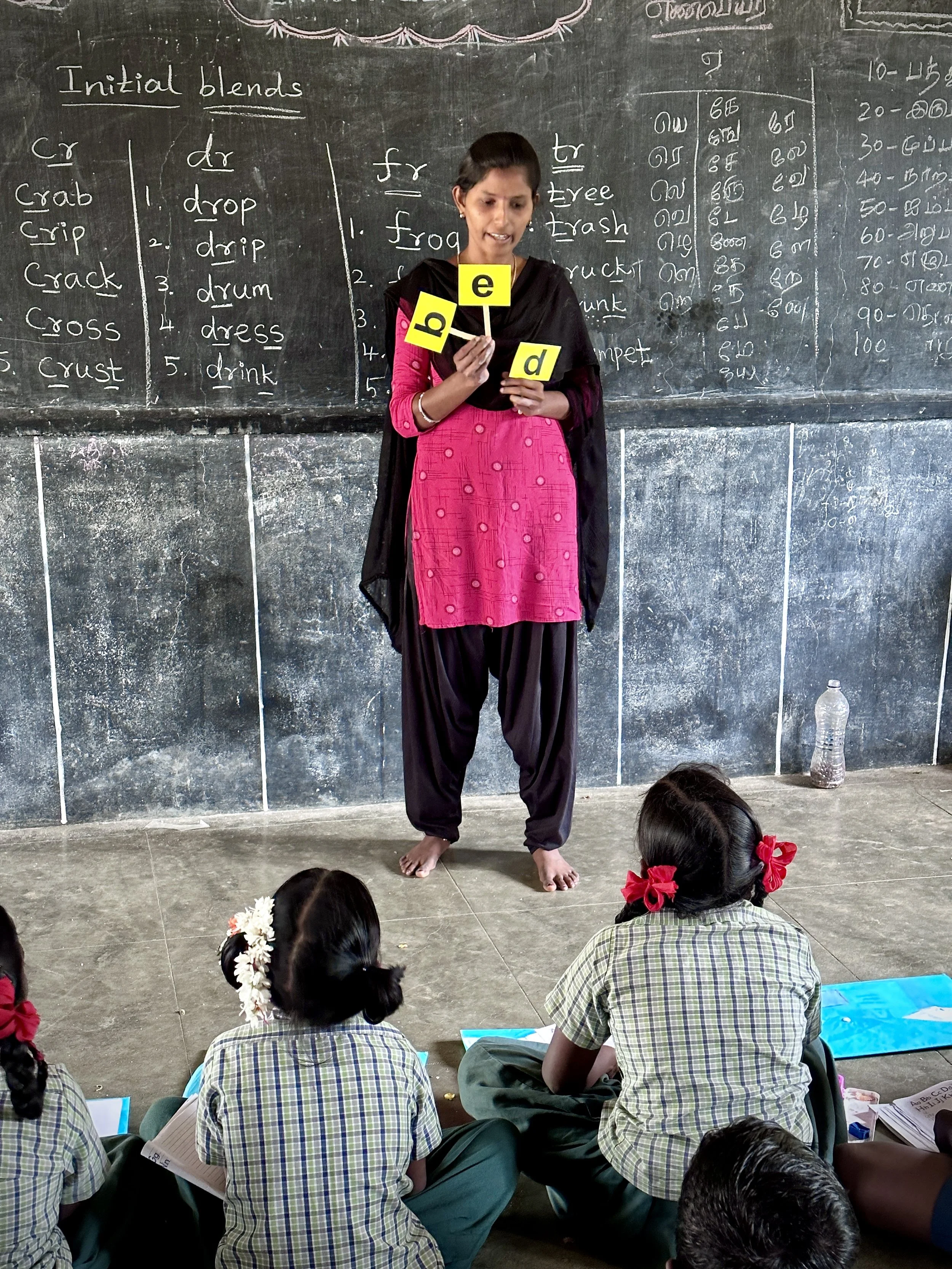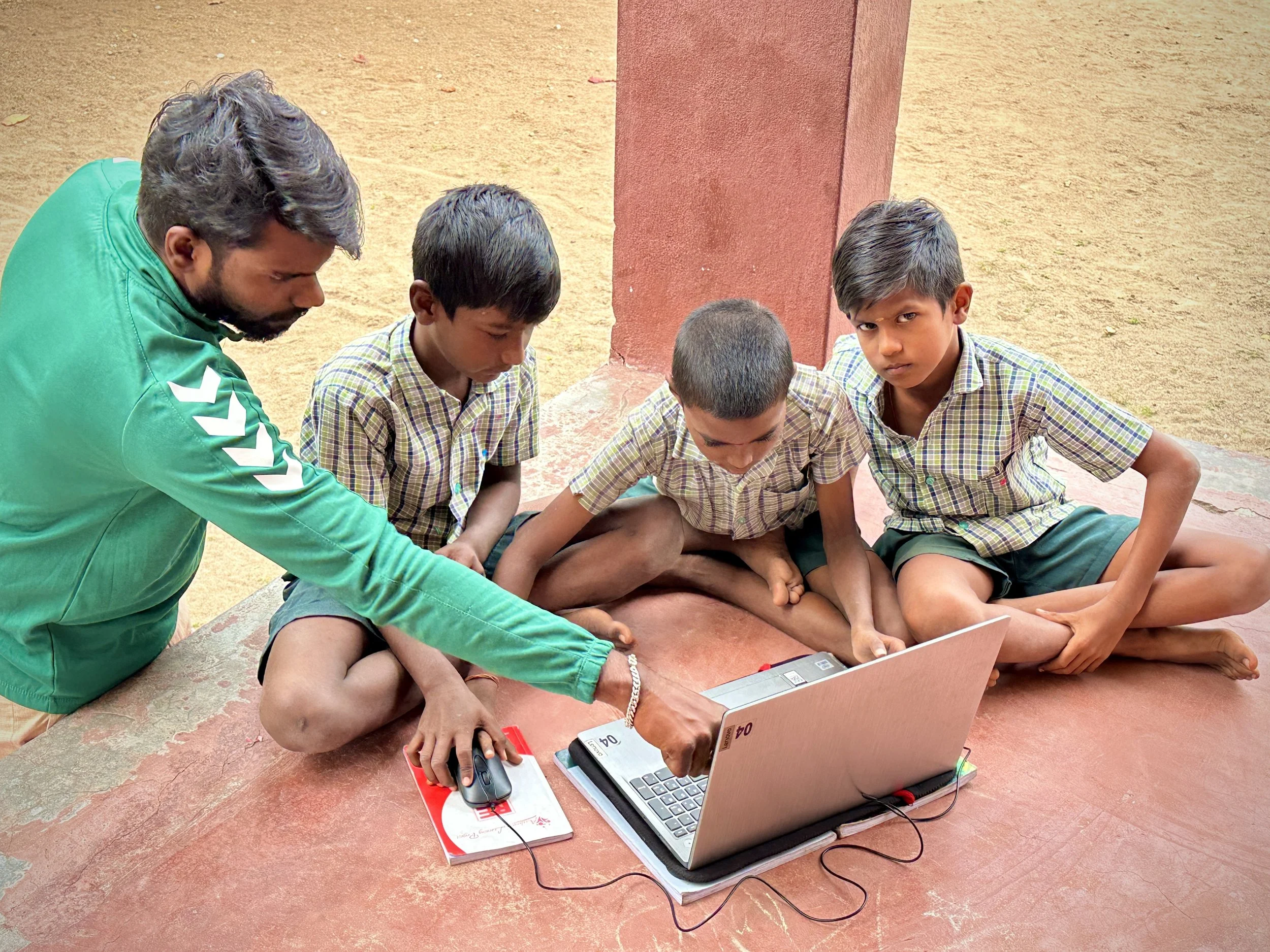ACCELERATED LEARNING PROGRAM (ALP)
ALP provides classroom teachers and their students with training in the best practices for teaching English and Math, thereby providing better learning outcomes.
Our learning coaches work in teams of 5; 3 English coaches, 1 Math coach, and 1 computer coach. Coaches travel by motorbike, car, and bus to spend a day at each participating school. They spend every Friday afternoon reviewing and assessing the week, preparing for the following week, and receiving further training in best practices for teaching English and Math.
English
ALP trains teachers in the best practices for teaching English.
Our English program utilizes the core practices of the Science of Reading, an evidence-based program recognized internationally as the best method for teaching students to read and write English. It includes 5 basic components of learning to read:
Phonemic awareness
Phonics
Fluency
Vocabulary
Comprehension
We use explicit, direct instruction that is sequential, structured, and multi-sensory. Each student receives a set of phonics books written by CR and an ALP notebook for their work.
Math
Originally, we taught only English, however, learning losses were so great in both subjects following the Pandemic that we added math to the program beginning in 2022. Our math program begins with counting, shapes, and comparison, progressing through the basic math applications and ending with factors, fractions and integers for the upper primary students. We encourage students to develop a strong number sense and to participate in number talks. Each students receives a math notebook. We use a combination of teaching resources: the Tamil Nadu math curriculum, Khan Academy,which focuses on India’s math curriculum, the Art of Problem Solving, a program that focuseson using critical thinking to understand basic math concepts; and Youcubed, a StanfordUniversity Mathematics Center program that focuses on conceptual thinking rather than memorization. We use the same method of instruction that we use for the English programutilizing short instructional periods reinforced by games and activities. English and math areeach taught for half a day. Each coaching team has one math teacher.
Teaching Practices:
Teaching units: limited to 10 minutes (the average 10 year old can focus for only 10 minutes at a time).
Relevant game or activity: follows each teaching unit.
Daily Read Aloud: English coaches read a picture book to students during each class. These Read Aloud sessions instill a love of reading, teach vocabulary, provide general background information, and model good reading practices for our students.
Learning stations: provide independent learning activities involving that days’ lessons in both English and Math.
Small group Sessions (6 students): allow coaches to work with students individually.
Exit tickets: Questions given to students at the end of class requiring them to answer a question about something learned that day. This practice gives coaches immediate feedback regarding students’ understanding of the day’s lessons.
COMPUTER EDUCATION:
Teams travel with one computer education coach and 5 laptops to each school. After becoming familiar with the laptop, students in 4th and 5th standard begin with Paint and progress through Microsoft Word and basic keyboarding skills. The also learn how to access learning materials on the internet and participate in the Hour of Code, a world-wide day of coding each year. None of the schools where we teach have computers. Our program is their only access to computers before high school.
reading rickshaw
Our students live in a book desert. None of our schools have libraries. There are few community libraries and none have children’s books. Only 2% of our students own a book. Our Reading Rickshaw program enables us to provide limited access to quality reading materials during library time twice each month.












